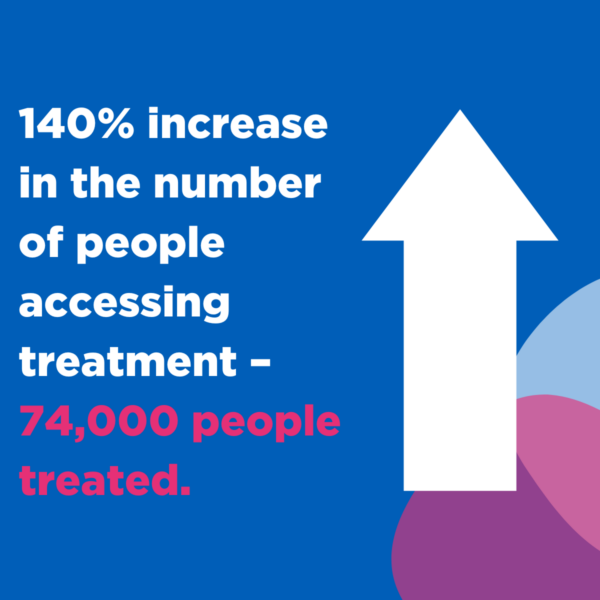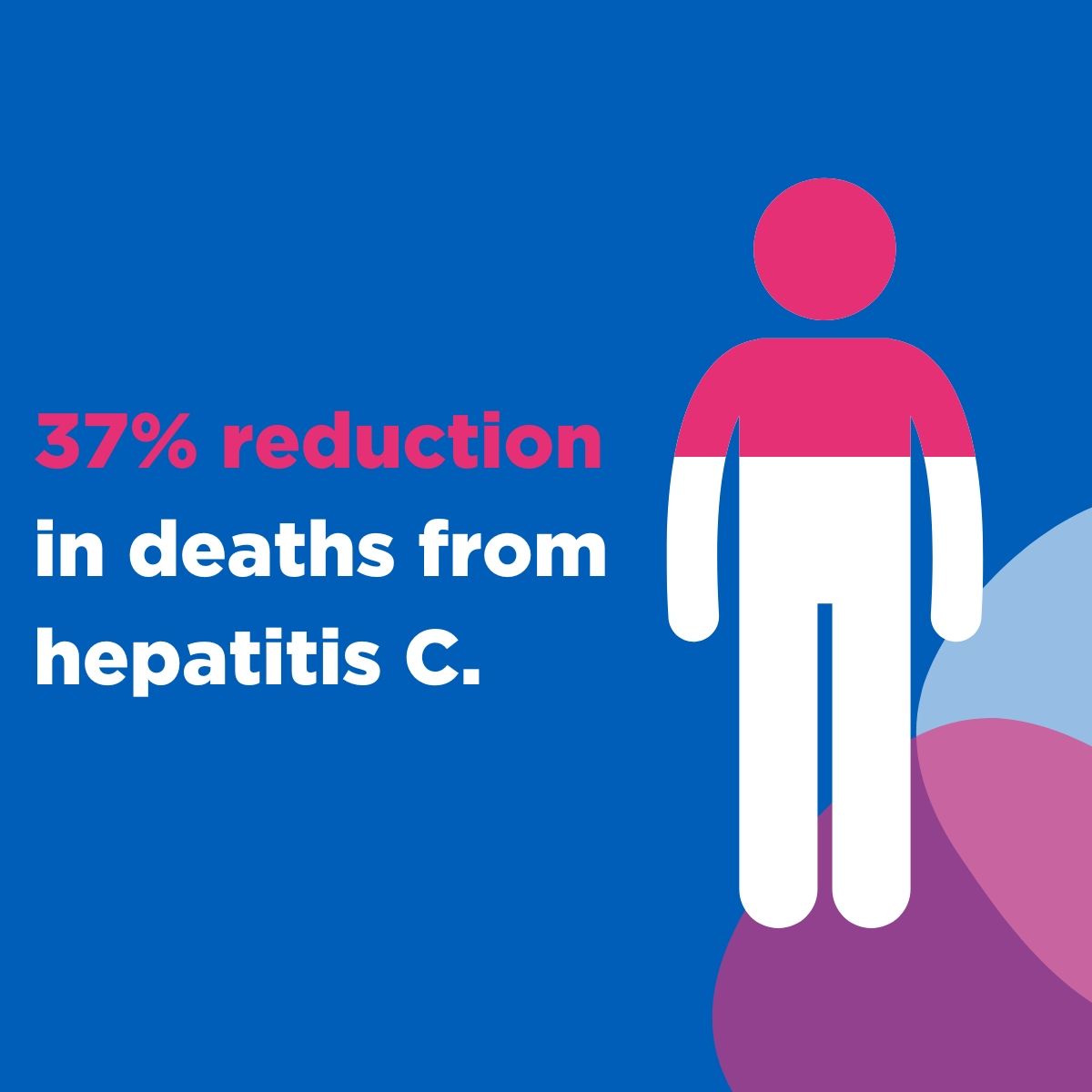Order one of our free resource packs today! Fill out the form here.
Hepatitis C Elimination Programme Successes
The goal, the impact, and the remaining challenges
Hepatitis C is a blood borne virus. It is transmitted when infected blood enters another person’s blood stream. If left untreated it can cause liver disease, liver cancer and death.
Hear from Sir Stephen Powis, why the hepatitis C elimination programme is so important:
The Goal
There is a global aim to eliminate hepatitis C by 2030, and a national aim to eliminate it by 2025. England may be the first country in the world to reach hepatitis C elimination. NHS set to elimination Hepatitis C ahead of the rest of the world.
Since 2015 the NHSE Hepatitis C Elimination Programme has led an unprecedented level of elimination initiatives across wide reaching programme partnerships.
The impact so far:
By ensuring all patients can access hepatitis C treatment, deaths from hepatitis C including liver disease and cancer, have fallen by 37%, achieving the global target of reducing hepatitis C related deaths below 2 per 100,000.


Key achievements of the NHS England programme:
- The number of people living with hepatitis C has fallen dramatically
- 37% reduction in deaths from hepatitis C
- 52% reduction in the number of liver transplants
- 102% increase in hepatitis C testing in drug services
- 140% increase in the number of people accessing treatment – 74,000 people treated
- In 2021/2022 – 50% of hepatitis C treatments were given to the most deprived 30% of the population and 80% of hepatitis C treatments were given to the most deprived 50% of the population
This study showed that emergency department testing was highly cost-effective, with hepatitis C and hepatitis B testing costing £8,019 and £9,858 per quality-adjusted life year gained respectively: Williams J, Vickerman P, Douthwaite S, Nebbia G, Hunter L, Wong T, et al. An Economic Evaluation of the Cost-Effectiveness of Opt-Out Hepatitis B and Hepatitis C Testing in an Emergency Department Setting in the United Kingdom. Value Health. 2020;23(8):1003-11).
The remaining challenges:
To reach the goal of hepatitis C elimination it is essential to engage professionals who work in the following areas and provide them with information, resources and support.
- Primary Care (General Practice, Pharmacy, Dentistry)
- Antenatal Services
- Emergency Departments
This is where you and your wider networks come in, we would like to have a Hep C Ambassador across each ICB, a person we can work collaboratively with to provide resources.


The Hep C U Later Offer:
Hep C U Later’s Engagement Programme is a new enhanced cross-NHS provider initiative led by Inclusion, part of the Midlands Partnership University NHS Foundation Trust, focused on providing communications, training, awareness, and resources on Hepatitis C.
Professional groups who engage with Hep C U Later’s Engagement Programme will be provided with:
- Resources (such as factsheets, posters, leaflets, TV screen graphics, wallet-sized cards, toolkits, and workbooks)
- CPD accredited webinars
- Linkage to hepatitis C networks and support across England
- Showcasing of best practice
If you would like to explore how you can be part of hepatitis C elimination in England there are a number of ways to engage with Hep C U Later: